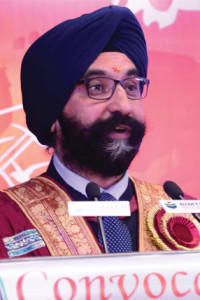Dr Kurien’s standard line to every Amul employee was: “Our first duty is to India; our second duty is to farmers and especially to the poorest in rural society; our third duty is to our institution – and our last duty, always, is to ourselves.”
I once asked Dr. Kurien what were the most important qualities that he looked for in someone, while recruiting a person into any of the organizations that he had created. His simple answer was: – ‘Integrity, Integrity & Integrity’. He used to tell us that integrity and character, once lost, could never, ever be regained. Integrity is to be honest to one-self. If you are always honest to yourself, it does not take much effort in always being honest with others, he said.
Besides Integrity, I really feel that patience and passion are the other two integral virtues that can take you places. The younger generation of today is very impatient and looks for speedy career growth. It must realize, however, that professional life is very long and focus should always be on a long-term goal.
As you would strive ahead in your career, you may face situations where your colleague might achieve more success than you and thus you would also be tempted to follow the similar path, compromising your value system. But as a member of young, elite, educated, smart, knowledgeable fraction of the society, you should remember that if not today, tomorrow the success, definitely, would be yours. So the question is not about achieving success but about values, because this only will give you satisfaction when you look back at your life, when you would be at my stage.
In short-term even if you do not achieve success, the experience you gain out of failure would be equally valuable, which you will realize later in your professional career. Accept failure as a part of life and do not dwell on it too much. One who fears failure limits his activities. Failure is only the opportunity to more intelligently begin again.
I have, personally, always followed the sermon prescribed by the Bhagwat Gita – “कम












Recent Comments